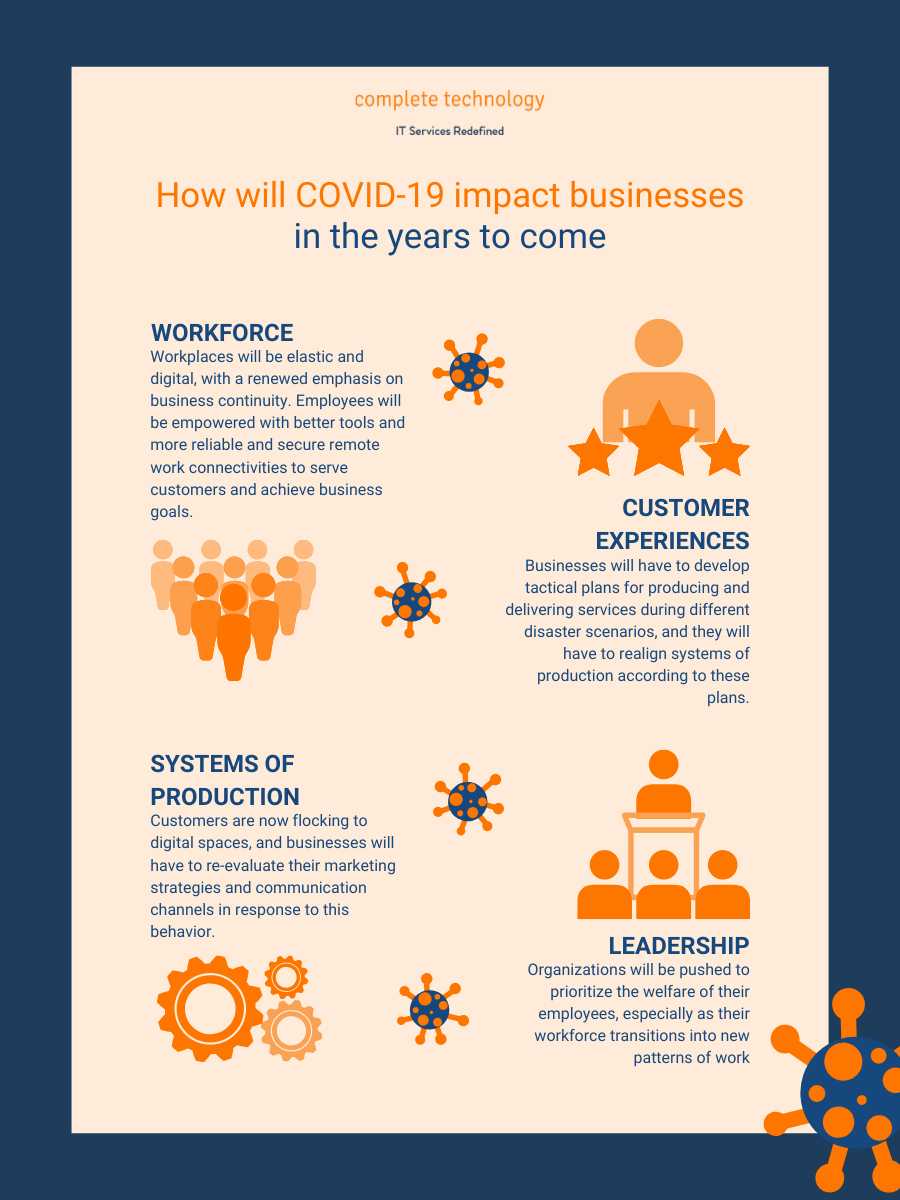There have been specific events in history that reshaped the business industry, and the novel coronavirus (COVID-19) pandemic is proving to be one of them. We are already seeing changes in consumer behavior that necessitate enterprises to rethink their systems, operations, and supply chains.
Experts believe that the business impact of the COVID-19 pandemic will remain evident in the coming years. The ripples of the viral outbreak will manifest in new ways of thinking, collaborating, and production. They will also be felt in resource allocation.
Which aspects of business will be most affected? Data tells us that the following facets will be transformed the most:
Workforce
The viral outbreak necessitated an immediate shift to remote working, an arrangement that will soon become the new normal in order to sustain more agile business strategies.
Workplaces will be elastic and digital, with a renewed emphasis on business continuity. Employees will be empowered with better tools to serve customers and achieve business goals. More reliable and secure remote work connectivities will also be a priority.
Complete Technology offers secure and reliable IT that supports business continuity.
Find out more.
Customer experiences
The current pandemic has changed customer experiences, from how they communicate with businesses to how they purchase goods and services. These experiences will undoubtedly affect customer attitudes, priorities, and behavior — and businesses must be able to adapt to such changes to keep patronage. They must be able to build and run experiences that give value.
Consider how the COVID-19 pandemic has resulted in a spike in eCommerce since physical stores were forced to close to curb risks of infection. Customers are now flocking to digital spaces, and businesses will have to re-evaluate their marketing strategies and communication channels in response to this behavior. They will also have to leverage technology to build stronger bridges that bring the company and its customers together.
Systems of production
Resiliency is the name of the game. If your business can quickly adapt to new challenges — if it can maintain uninterrupted systems of production despite unprecedented business disruptions — it will survive. Hence, de-risking the organization will become a priority, and disaster response protocols will be fortified to ensure business continuity.
Businesses will have to develop tactical plans for producing and delivering services during different disaster scenarios, and they will have to realign systems of production according to these plans. Technology will play an even more critical role in monitoring volume changes, mitigating disruptions, and minimizing value chain risks. Investing in flexible and scalable IT services will support fluctuations in demand or shifts in business strategies.
Leadership
Company leaders will have to be on the lookout for ways to turn disruptions into opportunities. For instance, this pandemic has led customers to choose locally sourced goods and services because they are more accessible. With effective decision-making, small- and medium-sized enterprises (SMEs) can turn this change of behavior into an opportunity to strengthen their brand, improve customer satisfaction, and benefit their bottom line.
Organizations will also be pushed to prioritize the welfare of their employees, especially as their workforce transitions into new patterns of work. In the coming years, leaders will need to protect the health of their workers as well as keep safe the communities wherein they operate.
Lastly, there will be more leadership transparency. Stakeholders, particularly employees, will demand to see how decisions that impact them are made and implemented.
To stay afloat, your business will need to anticipate rather than react to changing market and customer needs. Complete Technology is the IT company that can support you through it all. Discover how our wide array of services can help you achieve your present and future goals. Call us at 816-398-7322 or send us a message for a FREE IT consultation.








